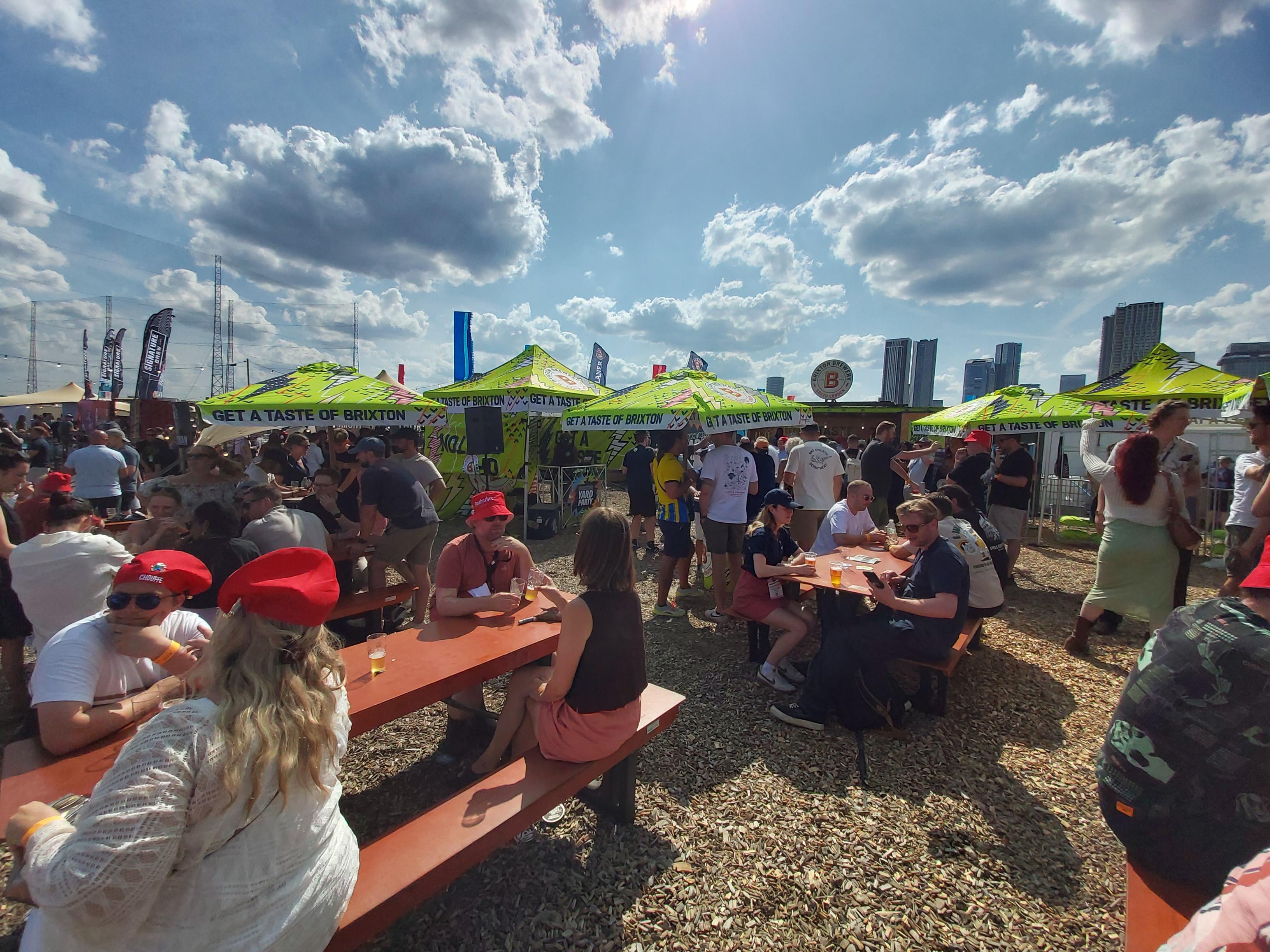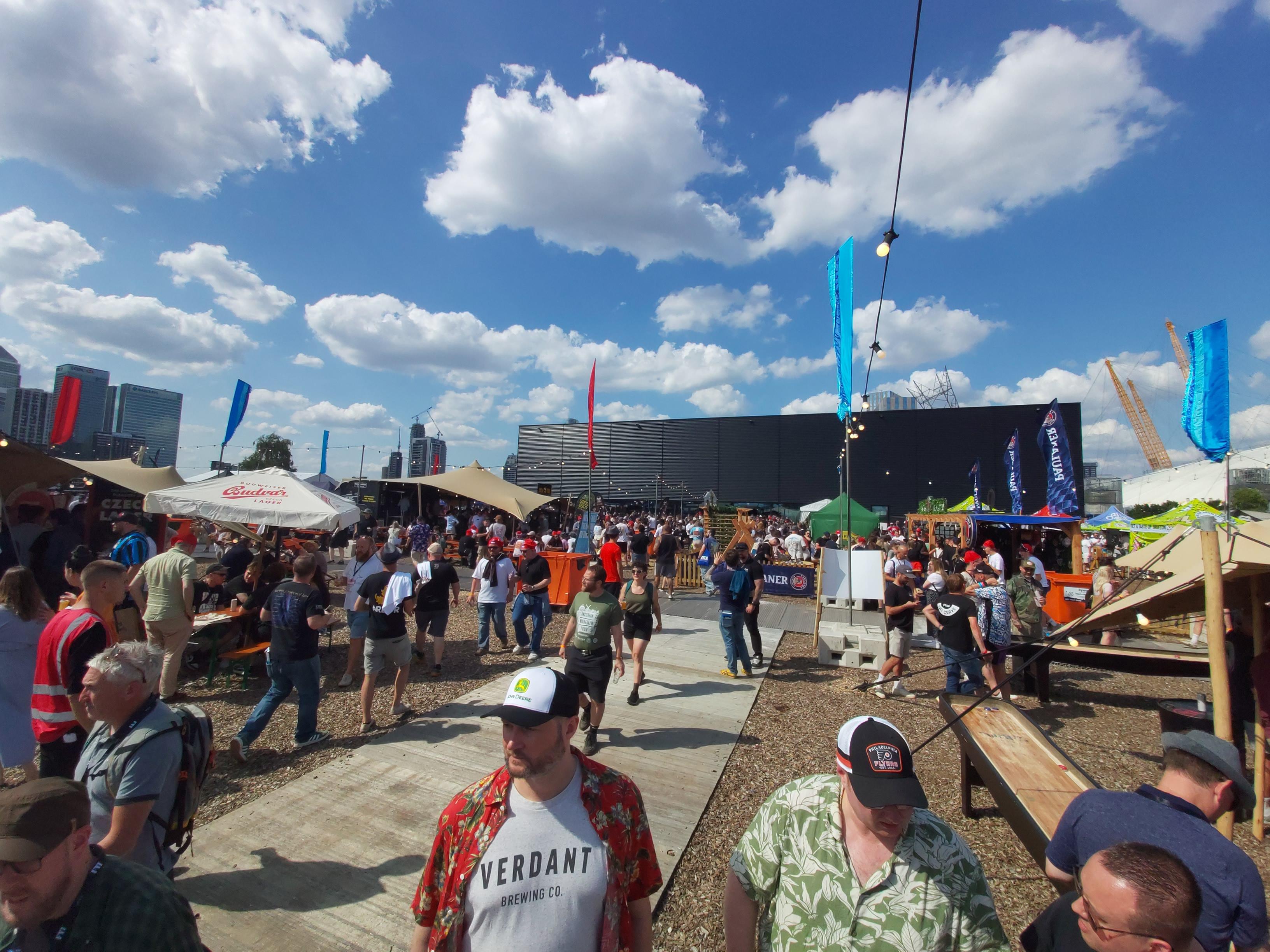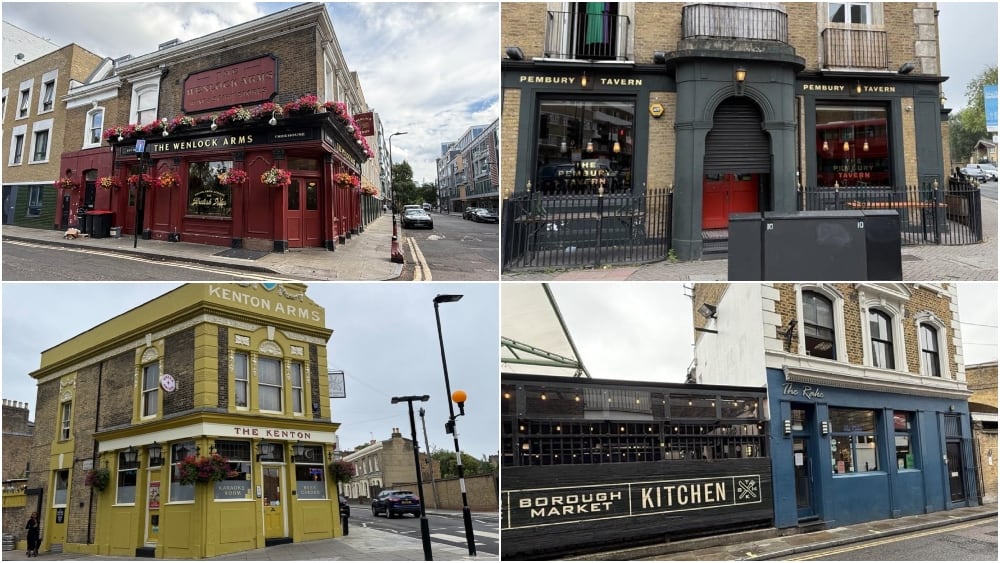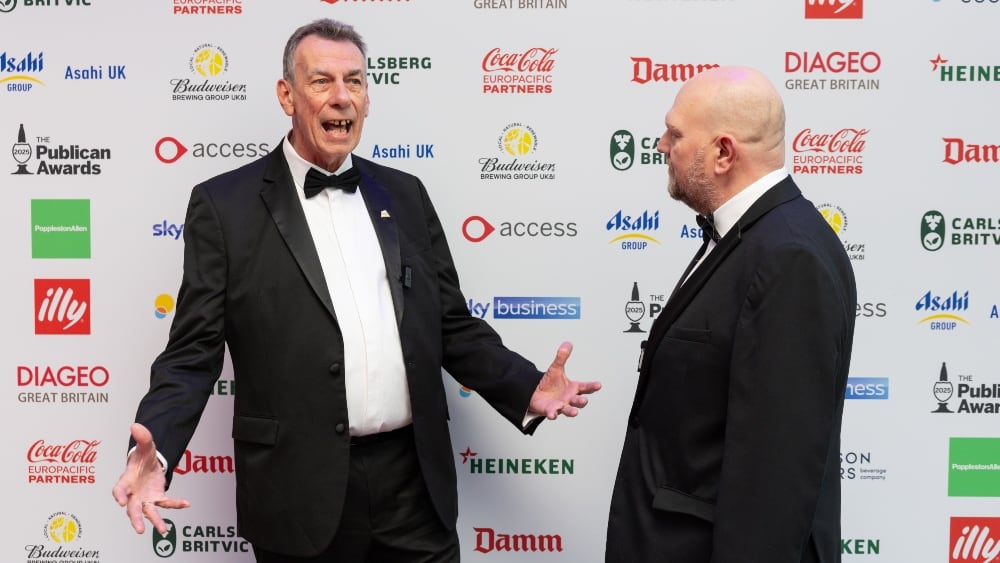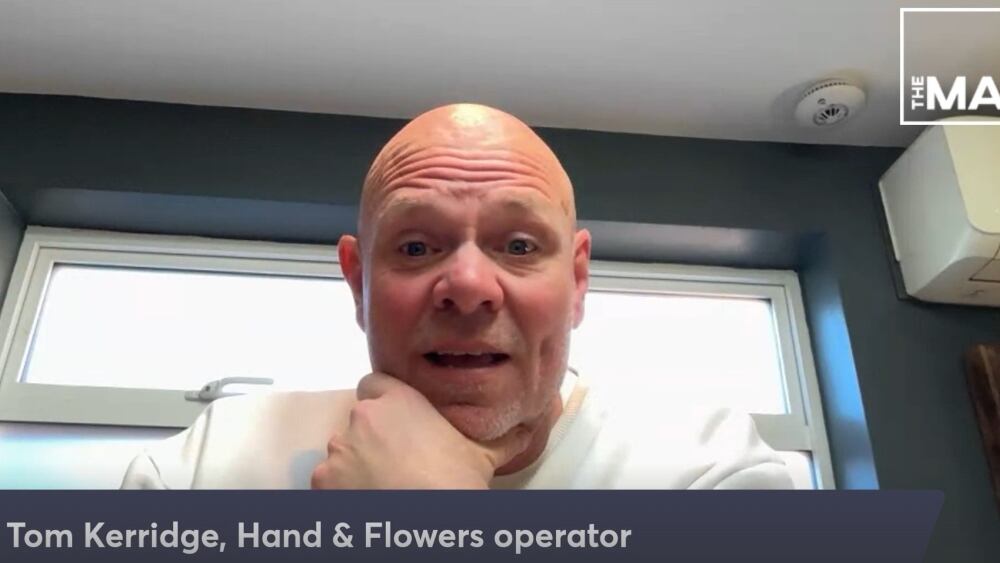The Morning Advertiser was lucky enough to make the trip on 18 July when the weather was roasting but the beers were cooling – and talked to six craft beer breweries in Verdant, Beak, Deya, Bluntrock, Renegade and Beyond Belief about their beers and trends in the market.
Verdant Brewing Co
Cornwall-based Verdant Brewing Co head of on-trade Joseph Hurst said the company used to focus on New England hazy pale ales and IPAs and joked Verdant was a one-trick pony but had a really good trick. However, he explains: “Now we’ve really branched out and about three years ago, we started our cask campaign in anger and cask is doing really well for us.
“I don’t think super hazy 6.5% ABV IPAs work best in cask so our cask is of a really traditional sense.”
I always joke ‘we take the path of most resistance all the time’
Joseph Hurst, Verdant
He adds the brewery’s other beers include Lightbulb – a 4.5% ABV extra pale ale – which he describes as the company “mainstay beer” and makes up 40% to 50% of Verdant’s production, which is packaged twice a week.
The second biggest beer is its Helles 4.8% ABV and sells well in its heartland of Cornwall.
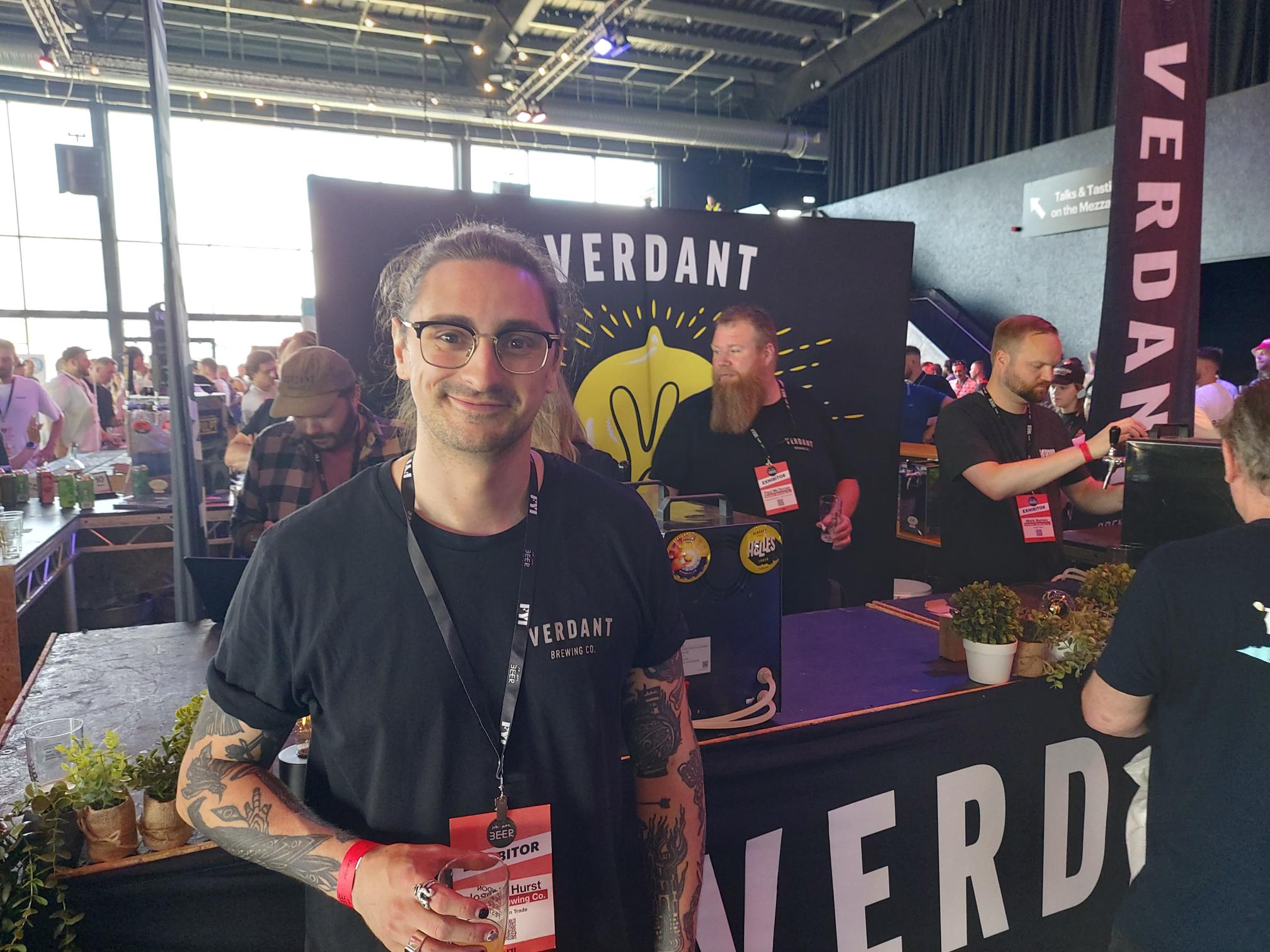
However, IPAs and Double IPAs (DIPAs) are what Verdant is best known for.
If a pub wants to get its kegged and cans, wholesale partners cater for the UK and pubs will often get beers slightly cheaper than direct contact to the Falmouth brewer.
Hurst states hobby and hazy is a trend that is not going away and adds: “We love West Coast IPAs and try to do one a month and that’s what the market is after and it’s growing steadily.
“However, by far and a way, what we’re seeing trend is alcohol-free beer. We have one called Psych!, which is a 0.5% ABV IPA that we produce every single month and we’re watching that go from strength to strength. We’ve been working hard to make sure we can produce an alcohol-free product where we’re not filtering anything out. We’re still hopping it like a Verdant beer and trying to keep the body of it.”
For the future, Hurst sees further low & no growth and a continuation of success for Lightbulb and its Sundialer 5% pale ale for the independent business that can deliver nationwide.
“People want indie beers and that’s what we are. I always joke ‘we take the path of most resistance all the time’. It’s the hard way of doing things but it’s worth doing it and you can taste it in the glass.”
He believes global brands have their part to play in the sector and explains: “The big guys have caught up with the indies and are now pricing in the same bracket. That means it comes down to the quality in the glass and makes it a more level playing field.”
Beak Brewery
Beak Brewery in Lewes, East Sussex, is another business in the Verdant mould with hazy IPAs and pale ales dominating its best-loved beers.
Head of operations and sales Kat Turkova says of Beak’s output: “We focus on really hoppy, hazy IPAs, pale ales and Double IPAs and we’re trying to hone the style.
“We’ve been going for just over five years and operate an on-site taproom, which we open every weekend. We don’t have any bars yet but watch this space.”
Its beers are available to the on-trade on keg and can and direct contact is encouraged.
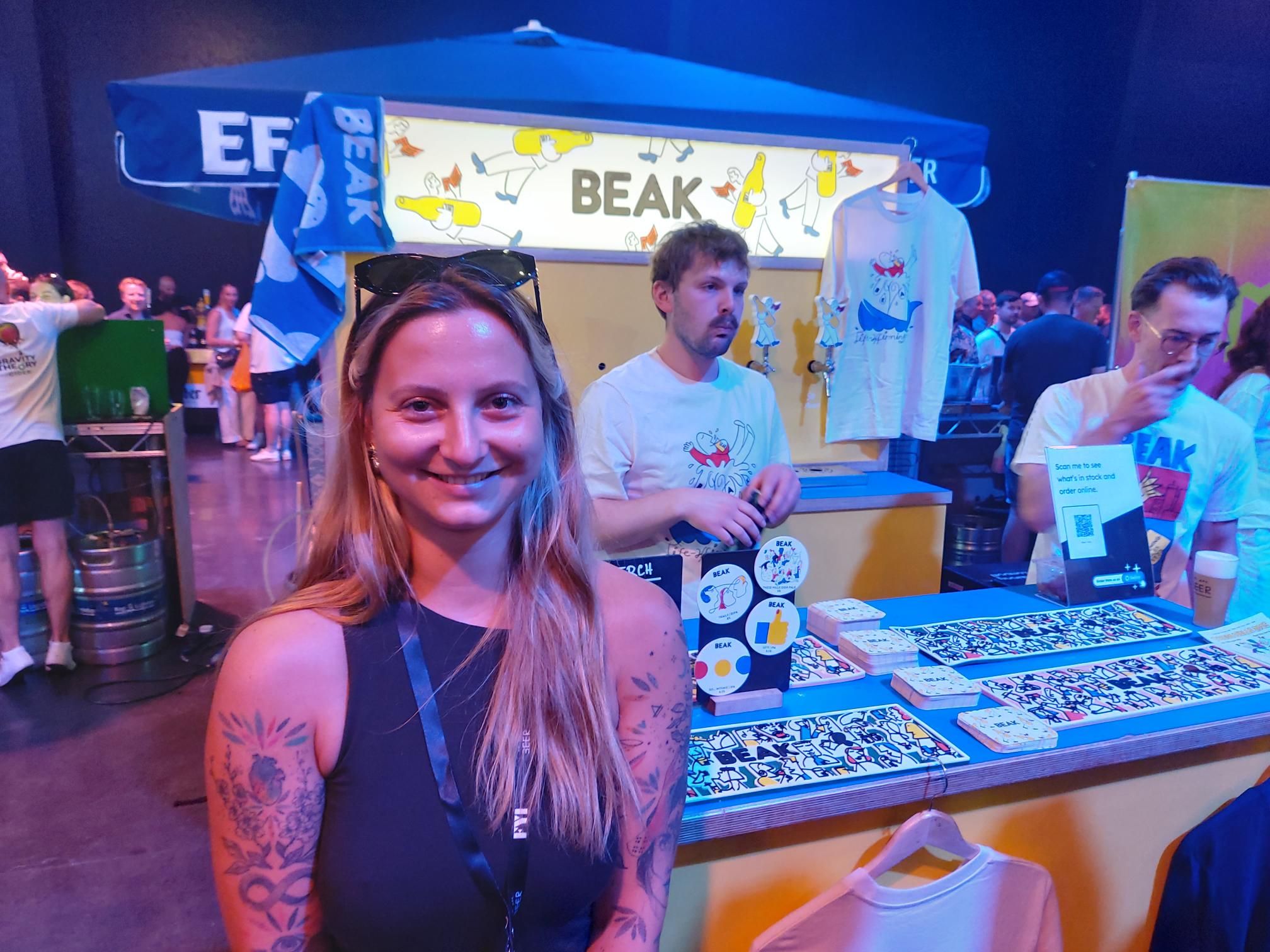
On trends, Turkova says: “DIPAs are coming back a bit. We’ve seen a such a high demand for the hoppier and stronger beers.
“Also cask is coming back big time. We do about three cask releases a year but they always fly out and they’re gone before they’ve even been packaged.”
“I like the tradition behind it – it’s so English. I like to see craft breweries go back to the roots and try to do cask in a craft way, for example, a hazy cask beer.”
On future trends, Turkova admits predicting what will happen in craft beer is so hard to guess.
“It can go so many ways. I would like to see something like hoppy pale ales, not exactly stripped down but easy drinking with big character.”
Yet again, low & no is something Beak is producing but under a different brand name of Nolia. Its main brew is an alcohol-free hazy IPA 0.5% ABV that is “saturated in super fresh hops” from the Yakima Valley in the US and Nelson Sauvin from New Zealand.
Bluntrock Brewery
Hugo Roads, co-founder of Bluntrock Brewery, which is located in Rock, Cornwall, was present with head of sales Rory Colborne.
Roads talks about the brewery’s range. He says: “We’re focusing on our hazy beers and we do some lagers. Plus, we’re also trying to dip our toes into cask beers as well.”
The brewer’s core range includes Pagan juice, which is Bluntrock’s best-seller. “That’s a 5% hazy pale ale. It’s really soft, clean and you get a lot of tropical citrus fruit aromas,” Roads states and adds the range also has Chub 4% ABV bright pale ale, Kanpai 5% ABV Japanese rice lager, Helles lager at 4.2% ABV and Zen 0.5% alcohol-free pale ale.
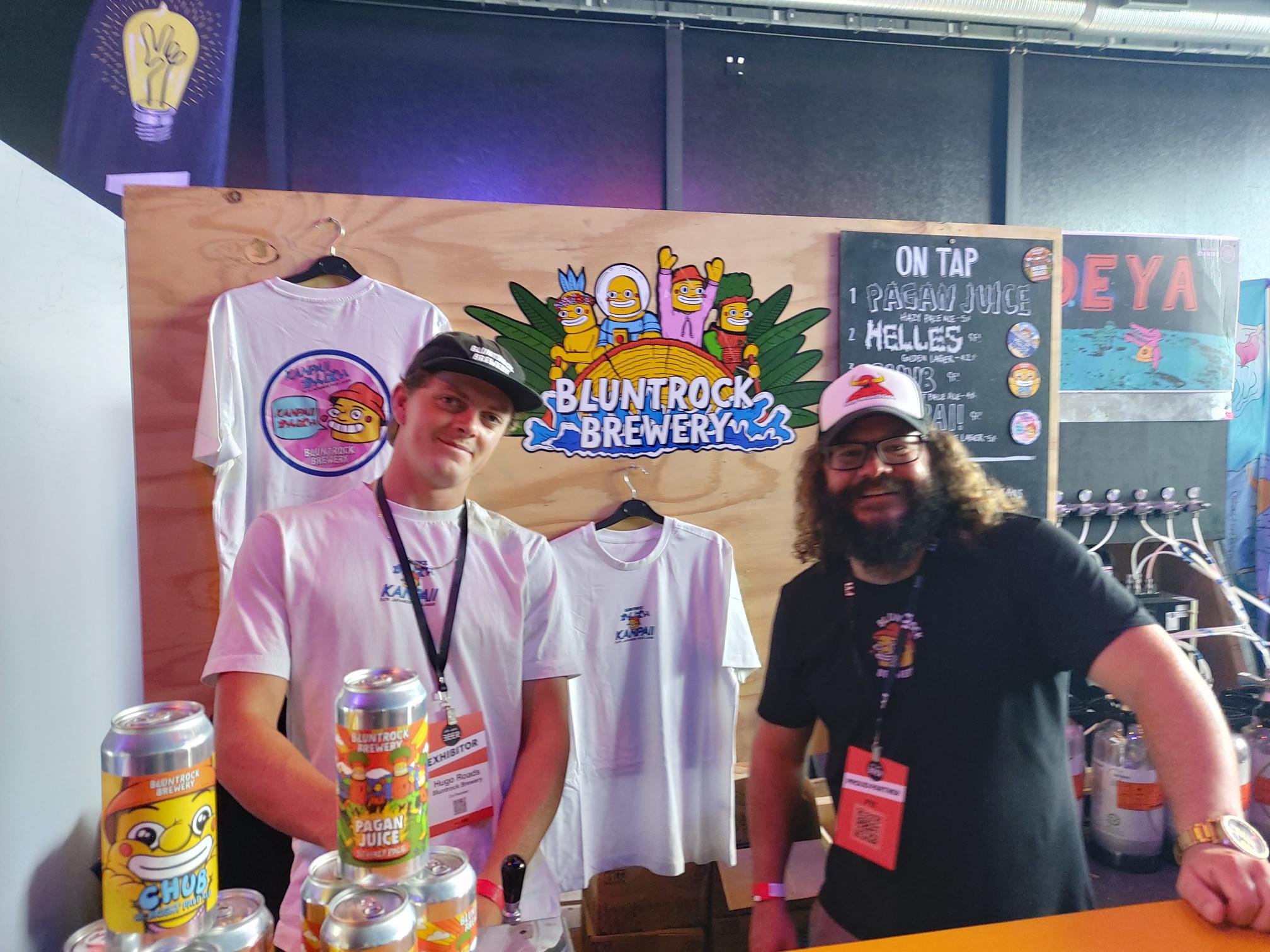
Meanwhile, Bluntrock Gold a 4.8% ABV pale ale has just into the Houses of Parliament’s Strangers bar and is “going down really well”.
The brewer produces plenty of different beers such as a lemon Radler and is launching a raspberry and peach sour going live in late July plus lots of IPAs and DIPAs.
“It’s all about pushing modern styles, having fun with it and making beers that people want to enjoy,” Roads explains.
Sours are definitely on the rise as well
Hugo Roads, Bluntrock
Bluntrock works with some regional wholesalers across the UK selling its kegs, casks and cans but is going direct to customers mainly.
Roads adds: “We’re getting a lot of interest now but we’re still quite a small brewery so we’re figuring out how best to go about it because we’ve only been going into wholesale for a year.”
The business’s taproom and nano brewery originally opened in shipping containers in Rock in 2021. “We were slammed and could never keep up on our tiny kit but the new brewery is only 1km away from the taproom.
“Growth has been really positive. We’re seeing some really good feedback on the beers and we’re really happy with how they’re tasting.
On current and future trends, Roads says: “People are looking for slightly lower ABV beers but the haze trend is still riding high. I wouldn’t say it’s necessarily growing but it’s still the absolute bread and butter in the beer industry and people are loving it.”
He also believes cask is coming back in a big way and really appreciates the invaluable work great licensees do when keeping cask correctly.
“Sours are definitely on the rise as well,” Roads adds. “Vault City are smashing it and I think that it’s almost becoming like having a cider option. A lot of venues will offer a sour instead and good ones will also include a hazy, a couple of lagers, a stout, and either a cider or a sour.”
Renegade Brewery
Renegade Brewery is hitting the trend for fruit beers with its Peach Lager but the brewer has more arrows in its quiver to offer.
Events & marketing assistant Matthew Lawson explains: “We are specialising in our keg range currently. In our past, we were very much a heritage cask brewer.
“Our main beer, which sell most of, is Good Old Boy Best Bitter 4%ABV, which is very toffee-esque with a stone fruit finish and we’re really trying to expand our range and show keg beer can be both acceptable and exciting at the same time.”
Again, pubs can buy Renegade beer either direct – if in the Reading, Berkshire, area and into London and along the M4 corridor– or through wholesalers.
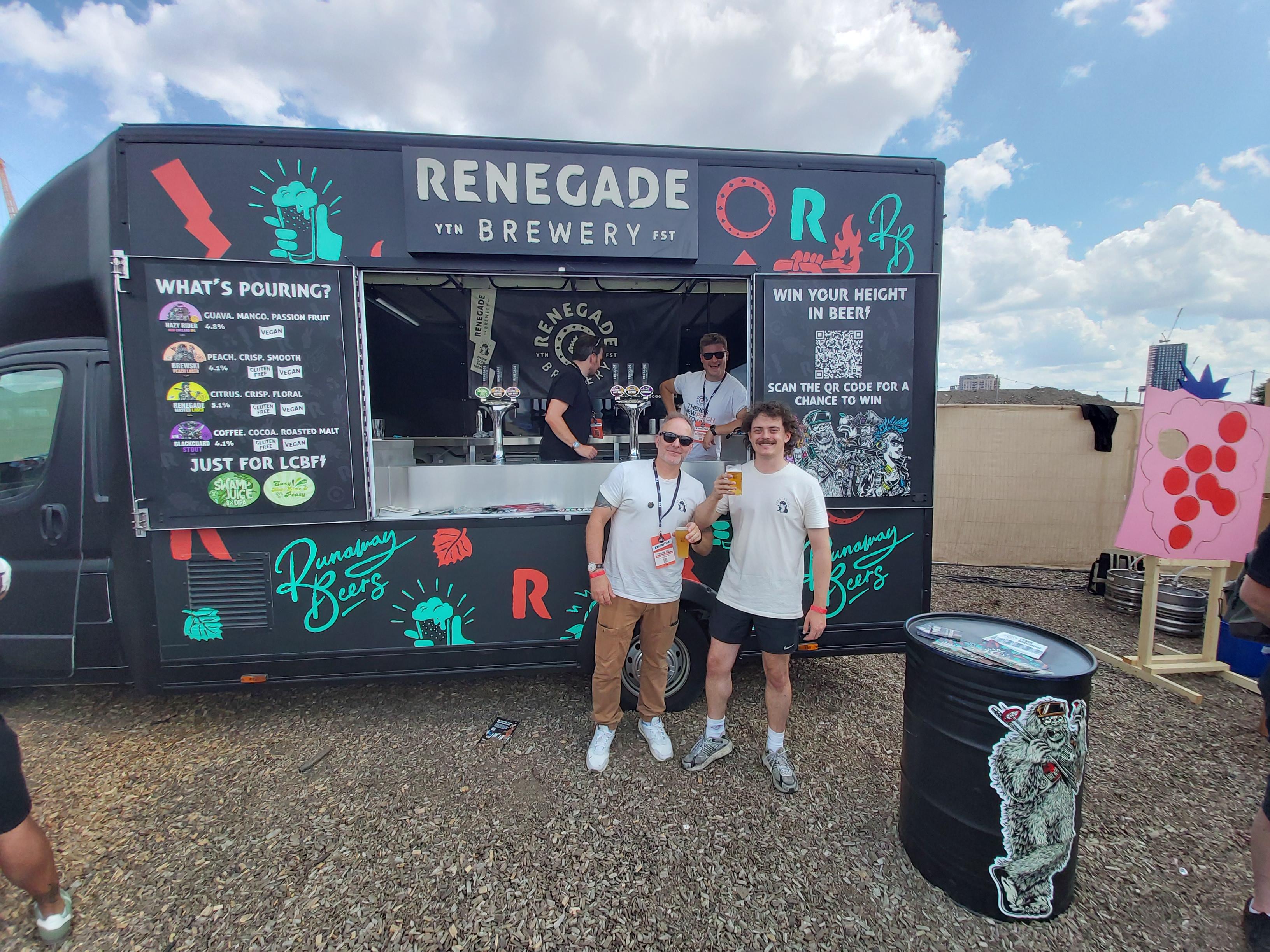
The Yattendon business has a taproom at its brewing and production site and has been known as Renegade since 2022 having taken over from the previous brewery that occupied the space.
As a sustainability initiative, Renegade uses “a lot of the malt that is grown in the farmland locally” and its other beers include Hazy Rider New England IPA 4.8% ABV, Blackguard Stout 4.1% ABV and the aforementioned Peach Lager 4.1% ABV, which is also available in a 0.5% ABV version.
Talking trends, Lawson says: “Low & no is huge. It’s impossible to get away from it. It’s difficult if you’re running a pub to have it on a line but in terms of packaged, there’s a wide array of low & no options for those that don’t particularly want to maybe have a 5% all the time.”
And for the future, he states Gen Z are perhaps not drinking as much alcohol as previous generations so it will be about enticing the younger people into pubs.
He believes the company’s Peach Lager is one way because it is “very easy drinking and is quite sweet”.
He continues: “Inoffensive is the wrong word but [Peach Lager] draws people into the craft beer scene without being too pushy about it. You still get a wonderful body and profile.”
On cask, Good Old Boy is the big one for Renegade but other options include Golden Ale 3.4% ABV in which Renegade uses American hops “to give it a little bit of that crafty taste while still being a classic traditional English pale ale”.
Beyond Belief Brewing Co
Seeing a huge amount of food waste led to the birth of Beyond Belief Brewing Company, which uses pasta to make its beer among other foodstuffs.
Charlie Ugo, CEO of the Hertfordshire-based business, states its partner pasta company sheds 60 tonnes of food waste a month and says: “It’s food, it’s edible. It’s just not permitted for the customers so it could be penne that’s cut a bit too short or spaghetti that’s ended up getting a bit tangled – but we found a way to extract the fermentable sugars.
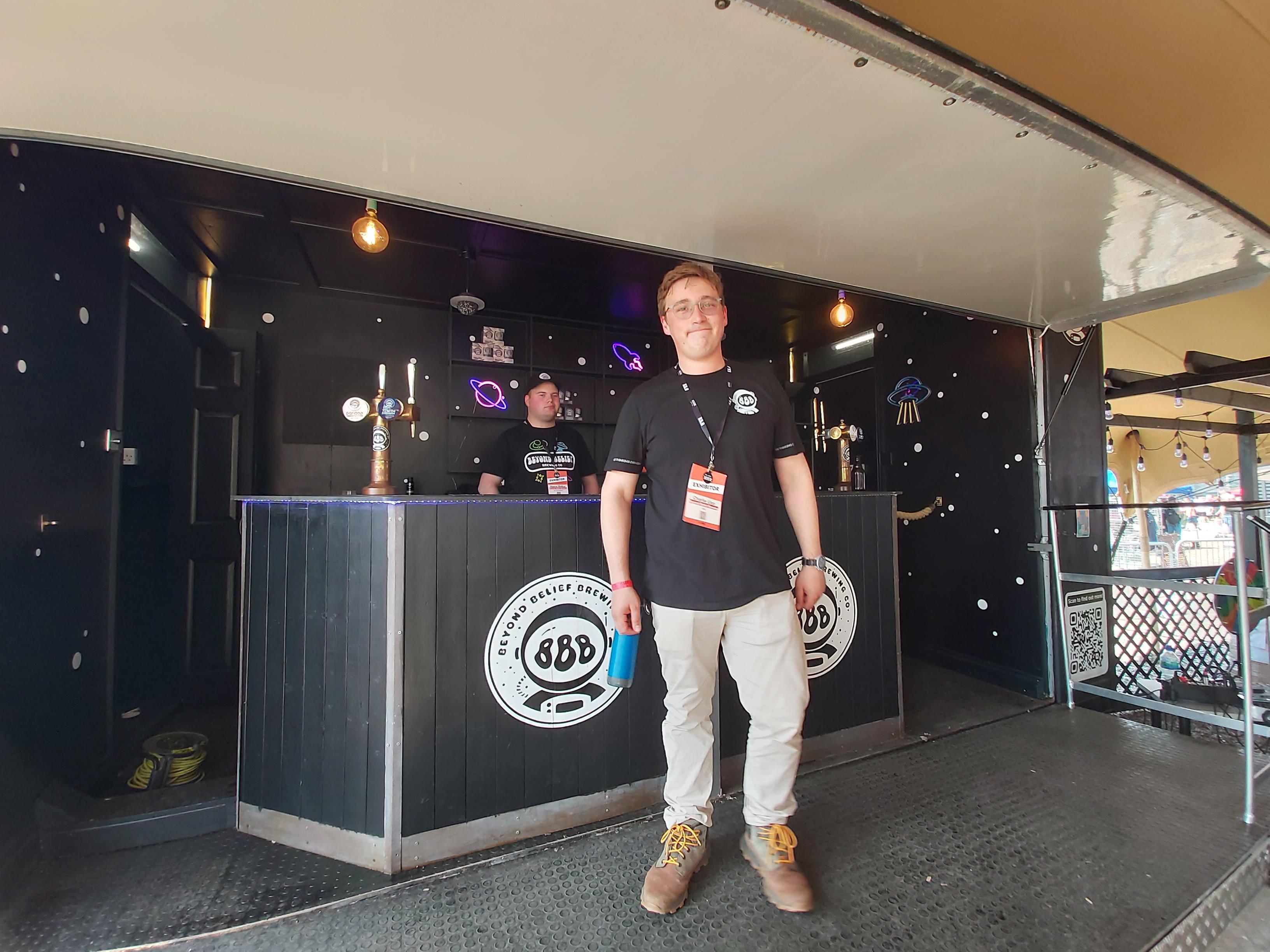
“All of our beers have at least 50% of surplus food and we’re now exploring other fermentables and we are backed with a Government grant and are exploring everything from flapjacks, brownies, bread, croissants, pizzas.”
Beyond Belief has just announced a collaboration in Ghana that uses a huge surplus of mangoes from farmers in Ghana, Africa.
We’re seeing a lot of positivity on collaborations going forward
Charlie Ugo, Beyond Belief
Its kegged and canned beers that are available to the on-trade include Downlink Vienna Lager 4.2% ABV (using pasta), Jetsam Stout 5% ABV (using flapjacks), Payload Pale Ale 4.7% ABV (using pasta) and Zenith IPA 5% ABV (using pasta).
The trends Ugo is seeing include sustainability naturally as demonstrated by Beyond Belief and for the future he says “Low & no is a big one. It will expand the consumer base [for a brewer and pub].”
Ugo adds: “In this time of increasing tax on alcohol, there also needs to be a focus on cost reduction. To do that you need to reduce your inputs and we are at the forefront of that. We have the highest percentage replacement of base malts and that’s 50% we are reducing malt costs by.
“That’s something every brewery is focusing on. We’re seeing a lot of positivity on collaborations going forward and the industry is seeming to be more collaborative than ever.”
Deya Brewing Company
Hop-forward premium beers are the order of the day for Cheltenham-based Deya Brewing Company.
Key account manager Georgia Kelly says the brewer makes American-style beers with Steady Rolling Man being its stand-out beer, which is a 5.2% ABV pale ale.
Its beers are available to pubs via wholesalers, covering the whole of the UK, and direct if more local to the brewery.
Kelly talks about what she is seeing in the craft beer market currently: “A lot of people will say it’s low & no but what we’ve seen is that more people are happy to spend a little bit more money on a really premium beer when they go out to drink.
“Everyone is going out a bit less, people are buying fewer drinks in the pub but when they do, they want to buy really good beer, which, for example, will be Steady Rolling Man, which won We Are Beer’s Top 50 UK Beers last year and was third this year.”
“We do a lot of high ABV stuff even though some people are saying craft beer is dying – no it is not. There are still amazing pubs opening, such as the Pocket in Islington (north London), which just opened has about 10 cask lines and we make cask as well.”
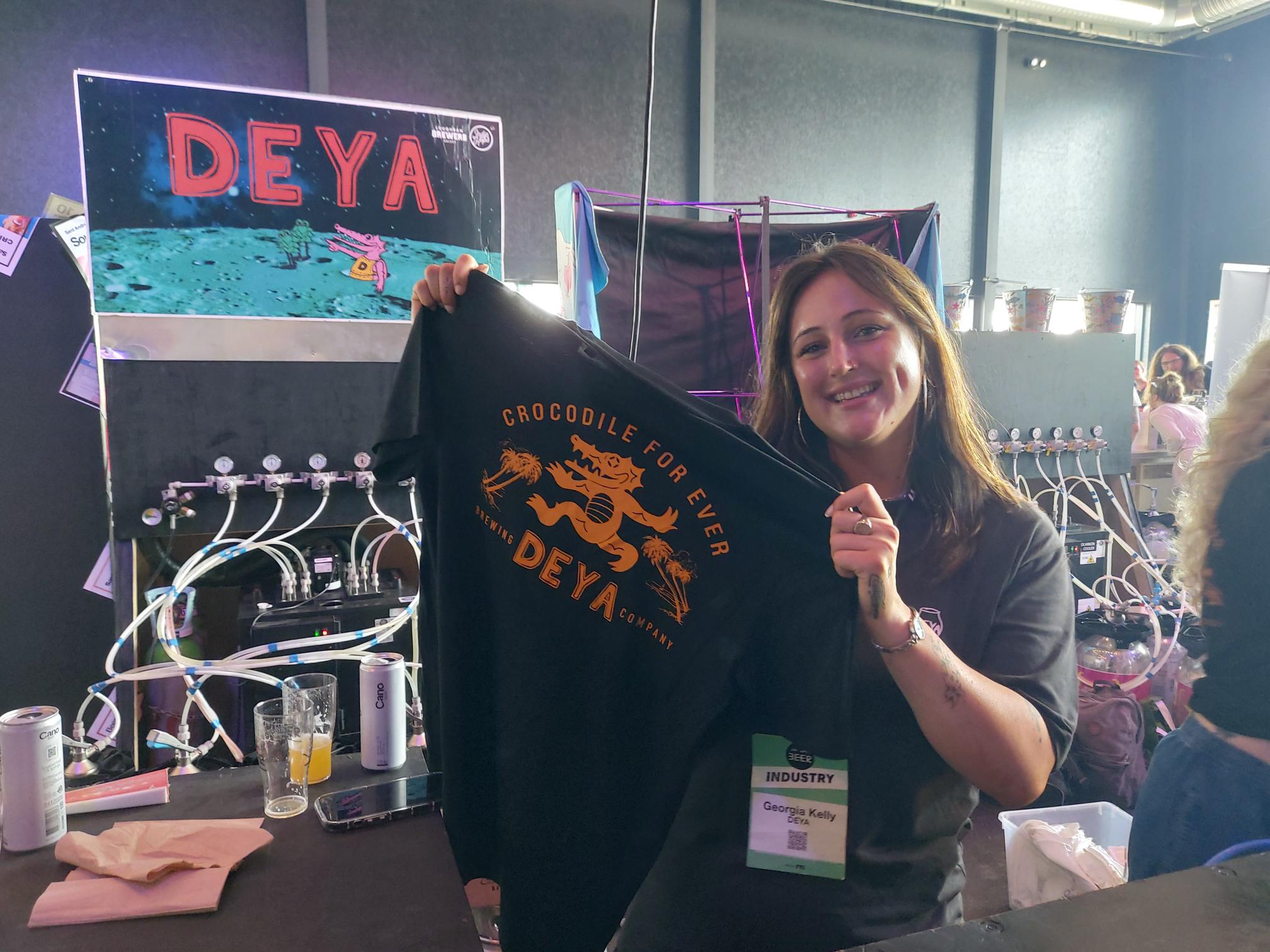
Kelly says Deya’s cask options include porters (Hokum 4.6% ABV) and pale ales (Summer Ale 4.5% ABV), and much of its keg line-up is available in cask too.
On the age range of people enjoying cask beer, Kelly explains: “In pubs, there’s been a mixture with young people going back to the very traditional pub vibe where British pubs have come back into fashion, with Guinness being super cool again.
“In those traditional spaces you are going to have cask as well. People just need to try things and with cask being a bit cheaper maybe that’s why cask is becoming more popular.
“When I go to the pub, I like to try something a bit different so price is not so important. Draught is such an important part of the beer industry so having a pint is key.
“There are more options and every generation just likes to try interesting things. I love that there’s been more ginger beers and dusties (older-style beers) have done really well and there’s alcoholic kombucha – people just want to try different things.
“Health and fruity beers are there too. And anything that brings women into the category as well is super important.”
However, cask still has a way to go according to Kelly to bring more women into the category.
On the future, she expects all brewers to introduce an alcohol-free option if they don’t produce one already. Deya’s is available in can only currently and is called Eye For Symmetry 0.5% ABV IPA.
Kelly adds table beers at around 3% ABV will prove popular too along with mixed fermentation beers (where more than one strain of yeast is used in beer fermentation to produce a different range of flavours), which see sees as “becoming a much bigger thing” and that “mixed ferm is the natural wine of beer”.
Kelly also believes sharing bottles at the table will also become a big player in terms of achieving greater sales and increased sociability.
